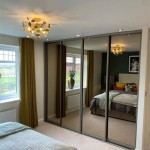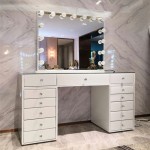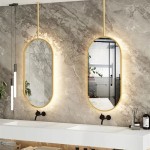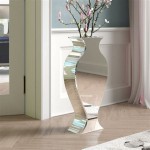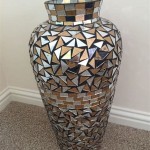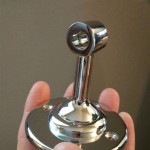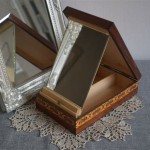Is a West-Facing Mirror Good?
The placement of mirrors in a home often sparks discussions, blending practicality with traditional beliefs. One common concern revolves around west-facing mirrors. This article explores the various perspectives surrounding this placement, examining the reasoning behind the beliefs and the potential impact on energy flow and well-being within a space.
Cultural and Traditional Beliefs
Many cultures associate the west with the setting sun and the realm of rest and reflection. Vastu Shastra, the ancient Indian science of architecture, advises against placing mirrors on the west wall. It suggests that reflecting the setting sun can amplify negative energy and disrupt the peaceful atmosphere needed for rest. This amplified energy is believed to potentially lead to restlessness, anxiety, and arguments within the household. Similar beliefs are found in some Chinese traditions, which associate the west with the metal element and believe a mirror reflecting the setting sun can create an imbalance of this element.
Energy Flow and Balance (Feng Shui Perspective)
Feng Shui, the Chinese philosophical system of harmonizing individuals with their environment, offers a nuanced perspective on mirror placement. While not strictly prohibiting west-facing mirrors, it emphasizes the importance of mindful placement. Feng Shui practitioners consider the Bagua map, an octagonal grid representing different life areas, when analyzing a space. Depending on the Bagua area corresponding to the west wall in a specific home, a mirror could either enhance or disrupt the associated energy. For instance, if the west wall falls within the Creativity and Children area, a mirror might enhance these aspects. However, if it coincides with the Helpful People and Travel area, it might be considered less beneficial.
Feng Shui also stresses the importance of what the mirror reflects. A west-facing mirror reflecting a cluttered or unpleasant view could amplify these negative aspects, impacting the overall energy. Conversely, reflecting a beautiful garden or a calming image could enhance positive energy. Therefore, the context and the reflected image are crucial considerations in Feng Shui.
Practical Considerations and Modern Interiors
From a practical standpoint, west-facing mirrors can indeed reflect the setting sun, potentially creating glare and increasing the room's temperature during the late afternoon. This can be disruptive, particularly in bedrooms or living areas intended for relaxation. However, this practical concern can be easily mitigated with curtains, blinds, or strategically placed furniture to diffuse or block the direct sunlight. Furthermore, in modern interior design, mirrors are often utilized to maximize natural light and create an illusion of spaciousness. A west-facing mirror can effectively bounce natural light deeper into a room, making it appear brighter and larger, especially beneficial in smaller spaces or rooms with limited natural light.
Scientific Perspectives and Light Reflection
From a purely scientific perspective, mirrors simply reflect light. The direction a mirror faces doesn't inherently possess positive or negative energy. The perceived effects are primarily rooted in cultural beliefs and individual interpretations. The discomfort associated with a west-facing mirror reflecting the setting sun can be explained by the intensity of the light and the heat generated. This can be objectively measured and managed through practical solutions like window coverings or using tinted mirrors. The psychological impact, however, is more subjective and varies depending on personal beliefs and cultural conditioning.
Balancing Tradition and Practicality
The decision of whether to place a mirror on a west wall ultimately rests on personal preference and a balance between traditional beliefs and practical considerations. Understanding the underlying principles of Vastu Shastra and Feng Shui can offer valuable insights into optimizing energy flow and creating a harmonious environment. However, it's equally important to consider the practical implications of light reflection and heat, as well as the aesthetic and functional role of the mirror within the overall interior design.
Evaluating the specific layout of the room, the surrounding environment, and the intended use of the space can help determine the most appropriate placement for a mirror, regardless of its orientation. By considering both the traditional and practical aspects, individuals can make informed decisions that align with their personal beliefs and enhance their living environment.

Mirror Vastu Right Direction Of In Homes And Offices

Vastu For Mirrors Reflect Harmony And Balance

Mirror Positioning According To Vastu Shastra A Brief Understanding

15 Best West Facing House Plans Based On Vastu Shastra 2024

West Facing House Vastu Plan Tips Square Yards
Is It Okay To Place Mirror On North East Wall Facing South West Quora

West Facing House Vastu Plan With Advantages Why It S Good 2024
Can I Place My Bed On The West Wall Legs Towards East As Have A Window South Is It Good According To Vastu Quora

Mirror Vastu Right Direction Of In Homes And Offices

Vastu For Mirror Direction Positions Mirrors In Bedroom

